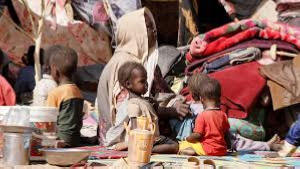The Ministry of Finance, together with the Bank of Ghana (BoG) and the Ghana Revenue Authority (GRA), have called on President Akufo-Addo to defer assenting to the Promotion of Human Sexual Rights and Family Values Bill (anti-gay bill) recently passed by the Parliament of Ghana.
In a statement sighted by GhanaWeb, the ministry urged President Nana Addo Dankwa Akufo-Addo not to assent the anti-bill into law.
It explained that assenting to the bill would have negative repercussions on Ghana’s economy because it would hit various agreements the government has entered into.
The ministry pointed out that if the bill becomes law, it would affect World Bank financing of government projects to the tune of US$3.8 billion.
It added that the passage of the bill would also affect the International Monetary Fund (IMF) bailout programme, which Ghana is currently undergoing, as well as the country’s domestic and external debt-restricting programme.
Here is the breakdown of how the anti-gay bill would hurt Ghana’s economy if it is passed into law, according to the Ministry of Finance:
Impact on World Bank funded programmes
i. The expected US$300 million financing from the First Ghana Resilient Recovery Development Policy Operation (Budget Support), which is currently pending Parliamentary approval, might not be disbursed by the Bank when it is approved by Parliament.;
ii. On-going negotiations on the Second Ghana Resilient Recovery Development Policy Operation (Budget Support) amounting to US$300 million may be suspended;
iii. On-going negotiations for US$250 million to support the Ghana Financial Stability Fund may be suspended;
iv. Disbursement of undisbursed amounts totalling US$2.1 billion for ongoing projects will be suspended; and
v. Preparation of pipeline projects and declaration of effectiveness for two projects totalling US$ 900 million may be suspended. Full details of the World Bank portfolio are attached as Appendix 1 & 2.
vi. In total, Ghana is likely to lose US$3.8 billion in World Bank financing over the next five to six years. For 2024, Ghana will lose US$600 million in budget support and US$250 million for the Financial Stability Fund. This will negatively impact Ghana’s foreign exchange reserves and exchange rate stability as these inflows are expected to shore up the country’s reserve position.
Impact on the Implementation of the 2024 Budget
The potential loss of these financial resources creates a financing gap in the 2024 budget that must be addressed either through a significant reduction in expenditures or additional domestic revenue mobilisation. Failing this, the government’s ability to achieve the targets in the 2024 Budget will be undermined, and the IMF-ECF Programme will be derailed.
Impact in the IMF Programme:
While there is no direct conditionality in the IMF-ECF Programme relating to the passage of the bill, the principles of the current IMF-ECF Programme are built on predictable financing from Development Partners (Financing Assurances), including the World Bank-funded Ghana Resilience Recovery Development Policy Operations. Hence, the non-disbursement of the Budget Support from the World Bank will derail the IMF programme. This will, in turn, trigger a market reaction which will affect the stability of the exchange rate.
Impact on Debt Restructuring Programme
Negotiations with the Official Creditor Committee (OCC) and Eurobond holders under Ghana’s debt restructuring programme are predicated on the success of the IMF programme. Hence, a derailed IMF programme will have dire consequences on the debt restructuring exercise and Ghana’s long-term debt sustainability.
Impact on African Development Bank Programmes
The African Development Bank has indicated that the passage of the bill will not have any adverse impact on the cooperation with Ghana.
Possible adverse reaction from Germany and the wider European Community
In several discussions with officials from the German Government, MoF officials have been informed that the German government is against the passage of the bill. Given Germany’s relatively strong influence in the European Union and the Official Creditor Committee, there is a need to manage the relationship to forestall a strong negative reaction.
Read the full statement below:
About the passage of the anti-gay bill:
The Parliament of Ghana, on Wednesday, February 28, 2024, passed the Promotion of Human Sexual Rights and Family Values Bill, widely known as the Anti-LGBT+ Bill.
The bill, currently awaiting presidential assent, proscribes Lesbian, Gay, Bisexual, and Transgender (LGBT) activities and criminalizes their promotion, advocacy, and funding.
Persons caught in these acts will be subjected to a six-month to three-year jail term, with promoters and sponsors facing a three to five-year jail term.
The bill will now require presidential assent to come into force within 7 days.
However, if President Nana Addo Dankwa Akufo-Addo refuses to assent to the bill, parliament, by a two-third majority vote, can approve it into law.
BAI/OGB
Meanwhile, watch the most recent episode of The Lowdown GhanaWeb TV below:
Ghana’s leading digital news platform, GhanaWeb, in conjunction with the Korle-Bu Teaching Hospital, is embarking on an aggressive campaign which is geared towards ensuring that parliament passes comprehensive legislation to guide organ harvesting, organ donation, and organ transplantation in the country.
Politics of Monday, 4 March 2024
Source: www.ghanaweb.com













